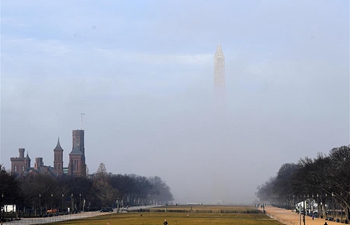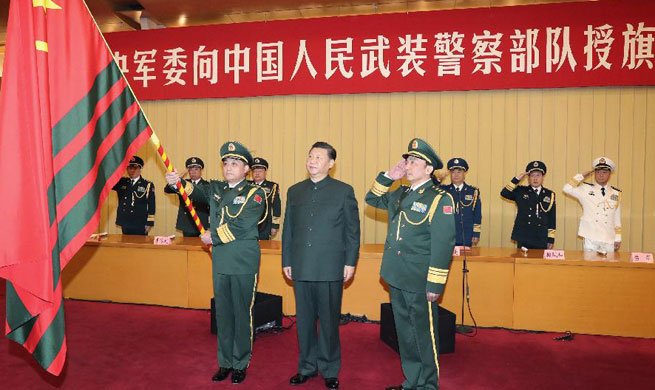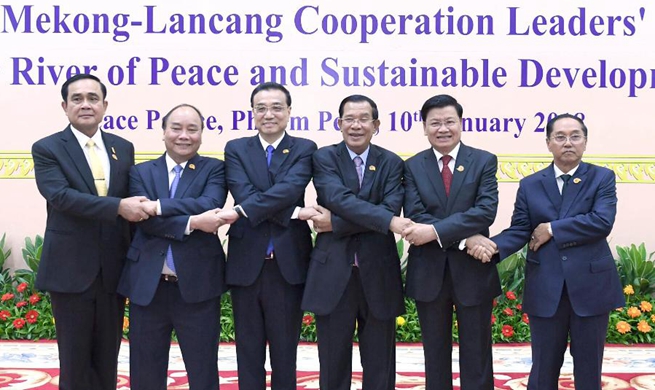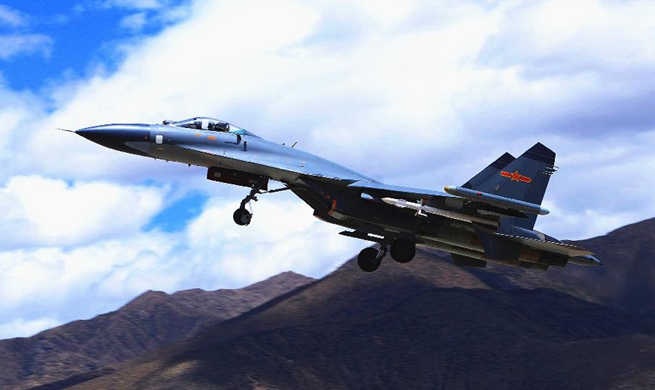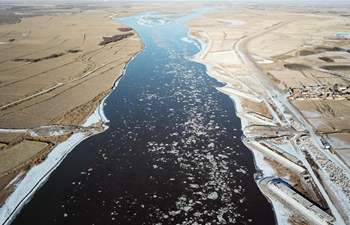by Muhammad Tahir
ISLAMABAD, Jan. 11 (Xinhua) -- Pakistani security experts have defended the government's decision to suspend defense and intelligence cooperation with the United States after the U.S. suspended all security assistance to Pakistan following U.S. President Donald Trump's serious charges against the country.
Defense Minister Khurram Dastgir Khan Tuesday said in Islamabad that Pakistan has suspended defense and intelligence cooperation with the United States amid growing tensions over the U.S. suspension of military aid to Pakistan.
Defense experts think the U.S. allegations and halt to military aid have forced the Pakistani government to use its leverage as it has this option, in view of the growing U.S. pressure and its use of the blame game.
Ijaz Awan, a retired major general in the Pakistani military, argued that the U.S. has pursued a policy of "coercion" towards Pakistan and that the approach of pressure tactics will be counterproductive.
"Pakistan has the right to use available options if the U.S. takes such measures against Pakistan and I think the government has come up with a mature response so far," Awan told Xinhua on Wednesday when asked about Pakistan's decision to suspend defense and intelligence cooperation.
"Pakistan has not run out of options but it should take more steps if the U.S. keeps on taking action against Pakistan," he added. He said there is currently a large trust gap between Pakistan and the U.S., and misperception on several issues including the fact that the conflict in Afghanistan could not be easily be resolved.
The already tense relations between the U.S. and Pakistan further deteriorated after Donald Trump wrote on Twitter on Jan. 1, that Pakistan "gives safe haven to the terrorists we hunt in Afghanistan, with little help."
He had also claimed that the "United States has foolishly given Pakistan more than 33 billion dollars in aid over the last 15 years, and they have given us nothing but lies & deceit, thinking of our leaders as fools."
Days after the controversial tweet, U.S. Ambassador to the United Nations Nikki Haley announced that Washington would withhold 255 million U.S. dollars in assistance to Pakistan from the Foreign Military Financing (FMF) fund, which is used to provide military equipment and training to friendly countries.
Reports also suggested that the U.S. decision to block aid to Pakistan could affect about 2 billion U.S. dollars worth of assistance.
For its part, Pakistan insists that anti-terror operations have been run "largely from its own resources, with costs amounting to more than 120 billion U.S. dollars in 15 years."
Public accusations by Trump and other U.S. officials were not taken well in Pakistan and political watchers and senior media personnel have slammed the U.S. move.
Munir Ahmad, Op-Ed Writer at the Daily Times newspaper said Trump's tweet vilifying Pakistan is a terribly strange message that shows the frustration of a person who heads a drowning super power.
"The United States has tuned Afghanistan into another Vietnam as it needs a scapegoat. Pakistan could apparently help serve this objective of the U.S. with the latter's lame accusations. But, everyone in the U.S. knows from their hearts that the U.S. cannot dump Pakistan's sacrifices for the so-called war against terrorism," Munir told Xinhua on Wednesday.
Pakistani leaders also disagreed with Trump's notion about assistance to Pakistan and insisted that the money had been paid for the facilities Pakistan had provided to the U.S. to transport supplies to foreign troops in Afghanistan.
Islamabad had earlier showed restraint despite allegations by the U.S. leaders and aid suspension but the defense minister's statement could be seen an indication that his country will be forced to make decision in its national interests.
Pakistan's defense minister had stated that Pakistan has not yet closed the air and ground networks of communication for the transportation of U.S. supplies to their troops in Afghanistan.
This is still a goodwill gesture by Pakistan at a time when the U.S. and its allies are still facing serious security challenges in Afghanistan and Pakistan's security cooperation is vital to the U.S. success in Afghanistan.







